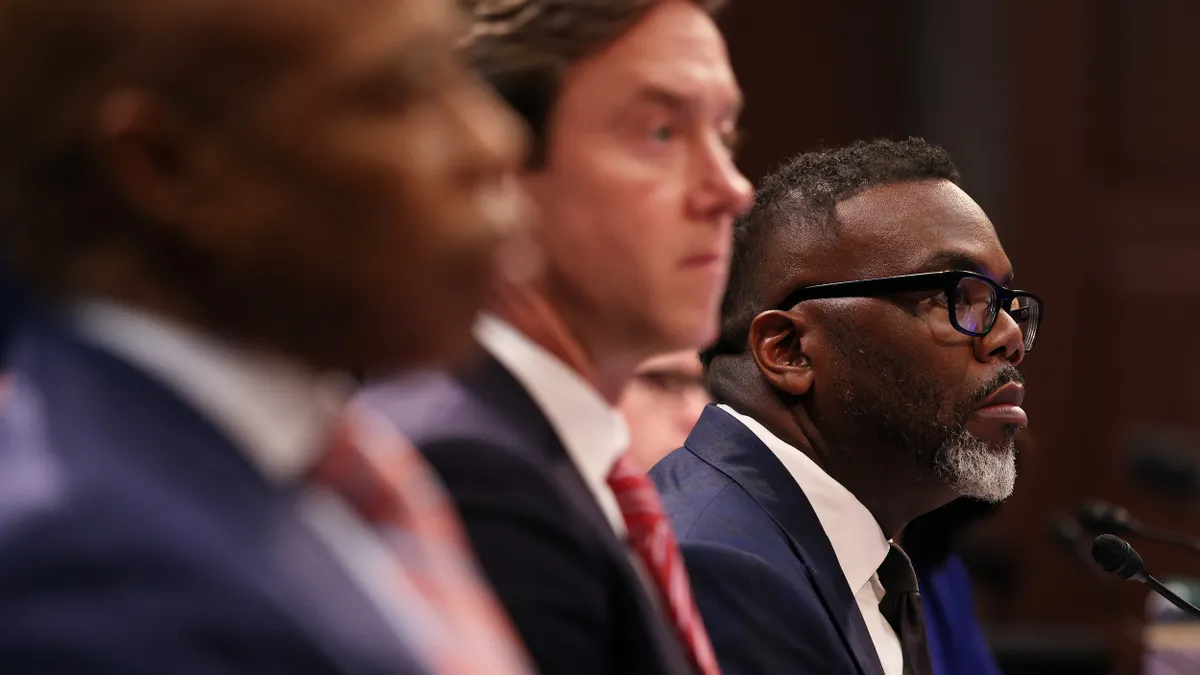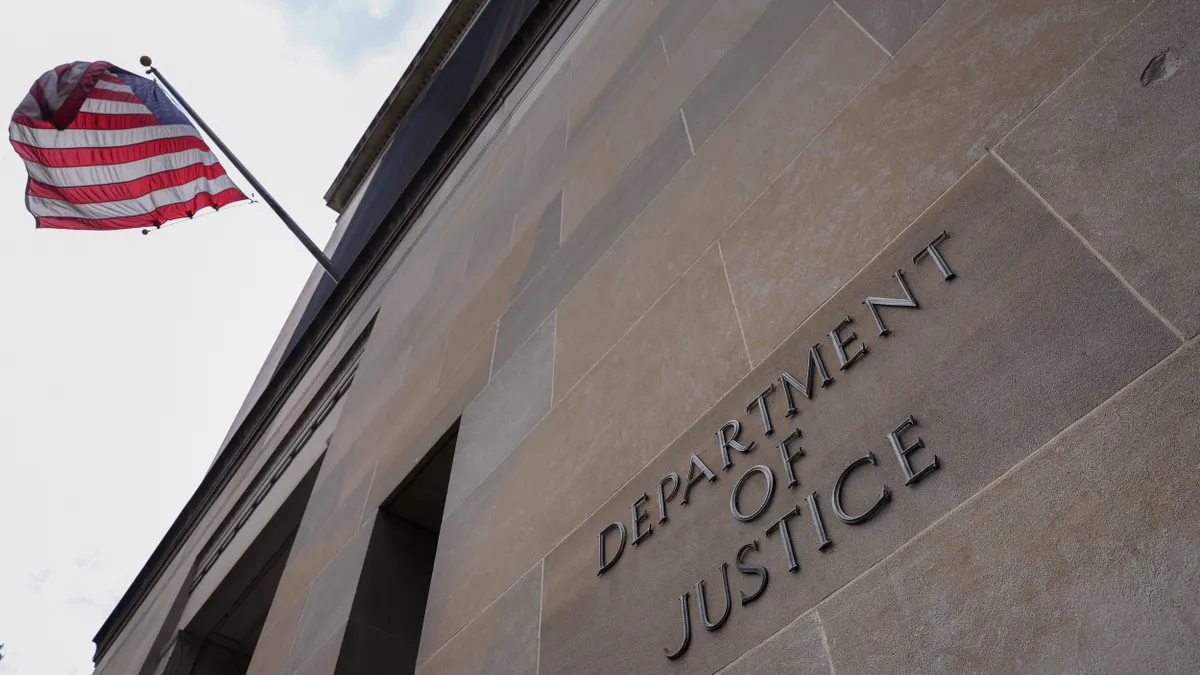The U.S. Conference of Mayors (USCM) Working Group on Police Reform and Racial Justice pushed back on calls to "defund the police," but called for additional measures to ensure officers are held accountable for misconduct in a report issued Thursday.
The working group's five recommendations are built on a statement of principles issued in late June to "address racially-biased practices" in policing. Underpinning the recommendations is a desire to rebuild trust between the police and their local communities, especially communities of color that have been discriminated against and over-policed in the past.
But while calls have intensified to "defund the police" and introduce other reforms, group members said defunding is not the solution. Success will lie in partnerships and more funding from the federal and state governments for services like mental health and suicide prevention, according to the members.
Below are the working group's five recommendations.
Redefine the role of local police and public safety
Rather than echoing calls to eliminate funding for police department services, the working group called for resources to be reallocated on an ongoing basis by city leaders, with more investment in social services to help those in need. That way, police officers can focus on solving crimes and issues like the recent spike in homicides in U.S. cities.
"We oppose defunding the police, but we also oppose defunding social service and mental health investments, and we ask that to be restored," Cincinnati Mayor John Cranley, a member of the USCM group, told reporters during a Thursday conference call.
The working group said that will necessitate a reimagining of the role police play in society. Officers are often asked to be the first responders to day-to-day issues that may be better handled by, for example, trained mental health professionals, according to USCM members.
"While our police play an essential role, and they must, we often ask them to be the first responders on everything, and that is not always the best response," Chicago Mayor Lori Lightfoot, who chairs the working group, said during the call.
Sanctity of life
Officers' use of force has been under scrutiny for years, especially after the police killing of George Floyd earlier this year. Physical tactics need to be rethought in order to minimize violent interactions between police and civilians, according to the working group.
Methods of restraint like chokeholds and firing at moving vehicles should only be used in "extreme cases," Columbia, SC Police Chief William Holbrook said during the conference call, with any use of force only used as a last resort when other options for de-escalating a situation have been exhausted.
"Our goal with every encounter should be voluntary compliance," Holbrook said. "Our officers should exhaust all reasonable alternatives before using force to accomplish lawful objectives. If force is used, it must be the minimum force necessary."
Police officers should also be trained to intervene when a colleague is using excessive force, while protecting those who do intervene from any kind of retaliation.
"We've all witnessed the consequences when fellow officers fail to intervene," Holbrook said.
Equality and due process
The protests against systemic racism that have swept across the United States and other parts of the world came as a reaction to over-policing communities of color. Police departments should do more to address inherent bias and unequal treatment, according to the working group's recommendations.
Departments should train all officers on bias-free interactions with the public and analyze "stop, search and arrest" records to determine if there are racial disparities in law enforcement, according to the report.
Recruiting more officers from the communities they will serve is also key, the report says. On the conference call, Phoenix Police Chief Jeri Williams said it is imperative departments look for officers and other support staff who are "part of the community and reflect that community."
Community
Police departments should also be more deliberate about fostering strong relationships and trust with the communities they serve. That can take a variety of forms, including by working closely with community leaders on identifying common challenges and goals, having incentive programs for officers to live in the places where they serve, or engaging in community policing programs, according to the report.
During the conference call, Baltimore Police Commissioner Michael Harrison said police departments must build trust in communities where it was never built, and repair trust where it was broken down. It will not be easy, Harrison said, but it’s doable.
"We all understand that trust takes sometimes years to build, but can be eroded in a single incident," Harrison said.
Transparency and accountability
While there have been some efforts to improve transparency and accountability in recent times, the report says more must be done, and that police unions and some of the collective bargaining agreements they have signed with departments are too restrictive.
Departments should make information such as complaints, officer investigations and disciplinary procedures publicly available and encourage the use of body-worn cameras, according to the report.
And Tampa, FL Mayor Jane Castor said collective bargaining agreements should be reworked to give police chiefs final disciplinary authority and to make it easier to dismiss those found guilty of malpractice.
While Lightfoot said it is true that the vast majority of officers are committed public servants, so should not be painted with "too broad of a brush," agreements and state laws that shield departments and officers from being transparent on allegations of misconduct are not helpful. Lightfoot urged police unions to be partners in changing how things operate.
"We're at this inflection point, and unions need to be part of the solution," Lightfoot said. "They need to understand that the health and well-being of our communities depends upon the legitimacy of the police in part. Police cannot be effective, they cannot do their job, if they do not have the community on their side."




















